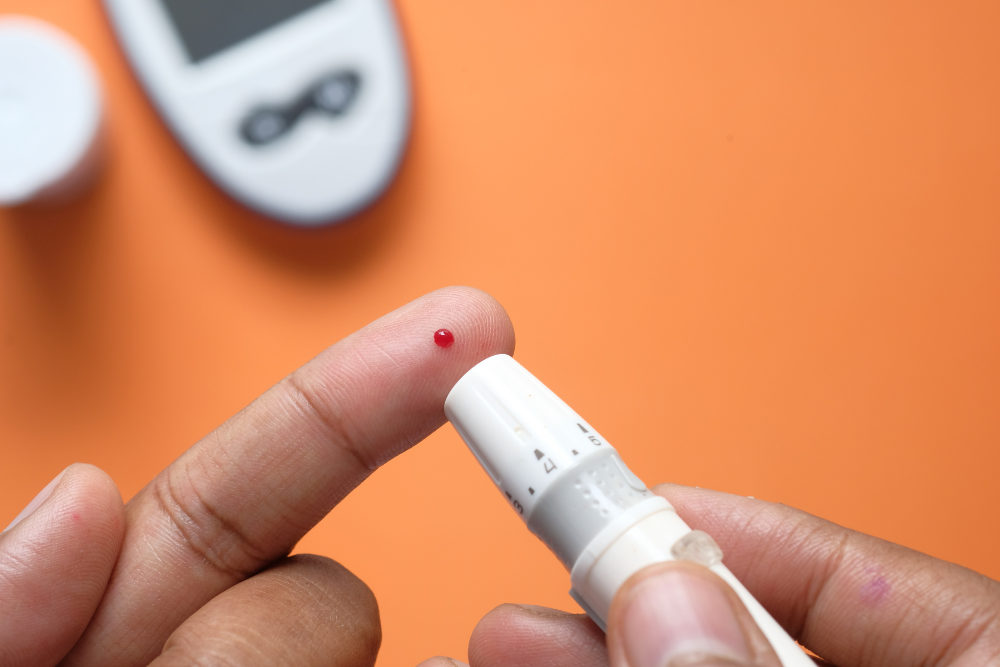4 Early Warning Signs of Diabetes

Do you have diabetes?
The answer may not be as simple as you think. According to the CDC, nearly a quarter of American adults living with diabetes are actually undiagnosed. That’s more than 8.5 million people who have no idea they’re living with a chronic and potentially deadly disease.
One reason for this problem is that diabetes can be easy to overlook, especially in the early stages of type 2 diabetes. Warning signs are subtle and often develop slowly, leading many patients to feel surprised when they finally receive a diagnosis. Unfortunately, those mild early symptoms can still cause lasting damage that increase your risk of future complications.
Which is why early diagnosis is so important. Whether you’re at risk of diabetes or have just been feeling a little off, here are 4 warning signs that should prompt a call to your doctor.
Common Warning Signs of Diabetes
- Frequent bathroom breaks.
Patients with diabetes have trouble filtering sugar (glucose) from their blood. As blood sugar levels rise, your kidneys draw excess fluids from your tissues and increase urine production to dilute and expel the extra glucose. This can lead to more frequent trips to the toilet, especially at night. - You’re extremely thirsty.
All those trips to the toilet can leave you feeling extra thirsty. As your kidneys draw water from your body to create more urine, your brain sends a signal that you need to drink more water to stay hydrated. Frequent urination also expels valuable electrolytes from the body, which can cause your brain to think you’re more dehydrated than you actually are.
While drinking more water is never a bad thing, an unquenchable thirst is always cause for concern. If you can’t seem to get enough water or have sudden and severe dry mouth, a trip to the doctor may be in order. - Sudden and severe fatigue.
When your blood sugar is high, your body has to work harder than normal to get rid of the excess sugar. Much like the fatigue that comes with fighting a fever, you may start to feel extremely tired and weak as your body uses its available energy to stabilize your sugar levels. Fatigue can also be caused by dehydration (a common result of frequent urination) and because your body isn’t getting the fuel it needs from your food. - Blurred vision.
High blood sugar levels can change fluid levels in the eye or cause the eye lens to swell, which causes temporary changes in your vision. Patients with high blood sugar may experience blurry vision for days or even weeks until their glucose levels return to normal.
Diabetes is a chronic and incurable condition, but early diagnosis and treatment can help patients live a long and healthy life. If you have one or more of these warning signs, speak to your doctor about undergoing a fast and simple diabetes test. Once diagnosed, your doctor can help you develop a treatment plan to manage your condition and improve your quality of life.
Search our Blog
Recent Posts
Mardi Gras 2026: Fairhope Festivities And Fun For All
It’s time to let the good times roll! The 2026 Daphne and Fairhope Mardi Gras season starts rolling soon with a full schedule of parades, balls, and festive celebrations along the Eastern Shore. It’s one [...]
Festive Holiday Treats for Diabetic Kids
The holidays are filled with cookie swaps, candy canes, and dessert tables as far as the eye can see. But for parents and teachers of diabetic children, the season can be a balancing act. Thankfully, [...]
Urgent Care of Fairhope Named One of the Best Urgent Care Clinics in Alabama
When you need medical care fast, you want to know you're choosing a provider you can trust. Recently, our community made that choice clear: Urgent Care of Fairhope was named a 2025 Best of [...]
Jingle Bells on The Bay: Fairhope Holiday Festivities 2025
Ho-ho-hold your reindeer! As we deck the halls and jingle all the way down the pier, get ready to unwrap a festive season like no other. Right here on the Eastern Shore, we’re mixing Southern [...]
Are Sugar Rushes Real? What Parents Need to Know
It’s a familiar scene for parents everywhere: the birthday cake gets sliced, the candy wrappers start flying, and within minutes the room erupts into chaos as kids start bouncing off the walls. Cue the collective [...]
World Menopause Month: What Women Need to Know
Menopause is a fact of life for all women, but it’s far from one-size-fits-all. Some women experience it earlier or later than others, symptoms can range from barely noticeable to highly disruptive, and individual health [...]


